Cutting back on sodium doesn’t just help balance blood pressure, it can also improve focus, concentration, and even academic performance.
Key takeaways:
- Students of all ages consume too much sodium
- The physical and mental effects of this can affect their academic lives
- Loss of focus, sleep, and self-esteem are all consequences of a high-sodium diet
- Low sodium snacks can help students reach their academic potential
Here’s a question for enquiring minds: can salty snacks sour school? It’s something every adult should think about since snacks play a significant role in students’ lives.
For many kids, snacks are a quick food fix before and after school or between classes. This means that many students snack multiple times throughout the day, five days a week. And those snacks are typically far from healthy, especially when it comes to their sodium content.
Understanding sodium
Sodium chloride (NaCl) is the chemical formula of the salt we all find on our table and in our food. It’s composed of about 60% chloride and 40% sodium and is something nobody can survive without, as it’s essential to healthy bodily functions. Because it was once a rare and valuable commodity, humans have become genetically inclined to crave salt, which is a real problem in today’s sodium-soaked society.
The recommended daily intake of sodium for adults is less than 1,500 mg according to the American Heart Association (AHA). While this number applies to 18-year-old students, it doesn’t cover younger ones. Here’s a snapshot of recommended maximum limits by age group as published in the Dietary Guidelines for Americans:
- Under 1,200 mg for ages 1-3
- Under 1,500 mg for ages 4-8
- Under 1,800 mg for ages 9-13
- Under 2,300 mg for ages 14-18
While they’re definitely lower than the amount of sodium a typical American consumes in a day (3,400 mg, according to the FDA), these guidelines are still higher than the 500 mg of sodium per day that the human body needs to function optimally. It’s easy, then, to overdo it (and most young people do), which can have disastrous effects on physical and mental well-being.
The harmful effects of high-sodium snacks
The negative health effects of excess sodium can be chronic – or even life-threatening. Adults may dismiss terms like high blood pressure (hypertension), stroke, and heart attack when thinking about young people, but these conditions aren’t just for grownups anymore.
The reality is that young people are in much worse shape than many parents, guardians, and school staff may realize. The AHA revealed that up to 5% of U.S. children and adolescents already have high blood pressure, with 18% having elevated blood pressure.
Like high blood pressure in adults, childhood hypertension can lead to a host of other health problems, so its increase is a cause for concern. Especially when you understand how high-sodium snacks can harm body and mind, and potentially affect a student’s academic performance.
How too much sodium can sour the school experience
Studies show that excessive salt intake can negatively impact academic performance. This may happen for a variety of reasons. For one thing, hypertension caused by too much dietary salt can lead to “brain fog”. This condition is caused by a lack of oxygen to the brain and is characterized by forgetfulness and difficulties with learning and concentration. Too many salty snacks can worsen hypertension and contribute to learning difficulties as students struggle with a poorly oxygenated brain.
Academic life can also be extremely stressful for young people. Research from Mental Health America shows that 16% of American kids aged 12-17 had at least one major depressive episode in 2022, with 11.5% experiencing severe depression.
Binging on salty snacks is a common self-comforting mechanism that only fuels the sodium and sadness cycle. This can further upset the body’s hormonal balance and sleep patterns, making school even tougher for students.
High sodium intake has been linked to weight gain and obesity, in part because excessive sodium intake can trigger hunger more than thirst. Weight issues can lead to low self-esteem in students, which can negatively affect academic performance as well as causing other difficult issues.
With everything else they have going on, young students don’t need excess sodium to be another problem in their lives, but all too often, that’s exactly what it becomes.
The health benefits of low-sodium snacks
Cutting salt intake down to the recommended levels mentioned above can improve a student’s health by helping them better manage their mood, sleep, and body weight while still ensuring that their brains have enough salt to function properly. Unfortunately, low-sodium snacks can be a tough sell.
Offer “low-sodium snacks” to a student –or many adults, for that matter – and they may run quickly in the other direction! Why? Because kids prize flavor more than anything when it comes to snacks, and low-sodium snacks have a well-deserved reputation for being bland, tasteless, or downright bitter. But all of that’s about to change thanks to MicroSalt®.
MicroSalt® is a revolutionary new product that can provide 100% of the salty flavor kids crave for only half the sodium. If that sounds too good to be true, we promise you, it isn’t. Tasting is believing.
Just try adding our SaltMe®! potato chips to your student’s lunchbox and you’ll see how it can scratch that flavorful snack itch. It’s all thanks to the power of our award-winning patented microparticle that delivers twice the salty flavor as traditional crystals, so you can use half as much.
Join the MicroSalt® mission for healthier student snacks
Every concerned adult with a stake in childhood diets needs to understand the importance of choosing low-sodium snacks for student health and academic performance. MicroSalt® is here to help make sure the vital issue of student diet stays in focus until food manufacturers, schools, and families have the awareness and resources they need to make student meals healthier than ever.
If you’re interested in joining the low-sodium revolution for better health, connect with us on our message page or call 1-877-825-0655 to learn more!




